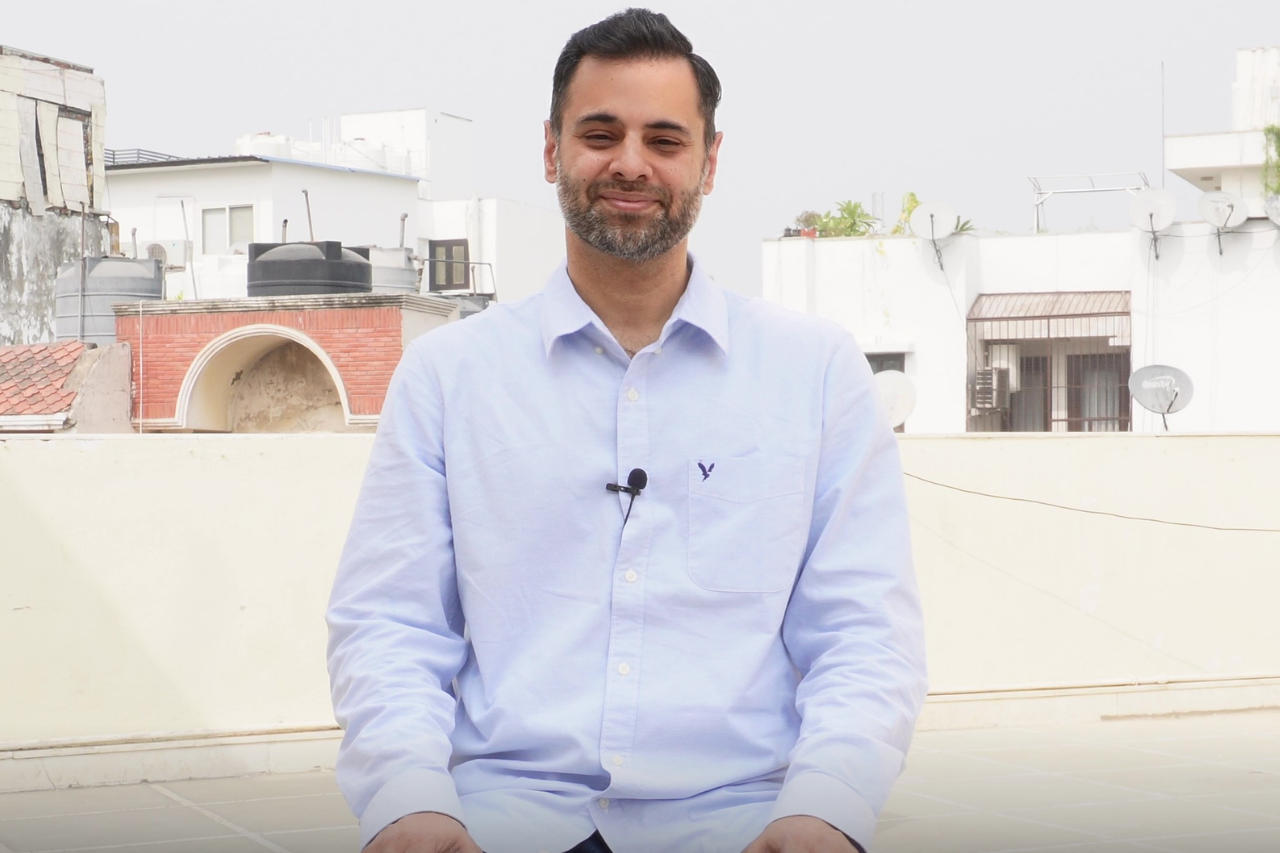Walking on your own path is a courageous act. Not because of the path in and of itself but because it entails developing self-awareness, which is not an easy undertaking for most people.
Trust me, it’s much easier to climb the highest mountain, but it’s extremely difficult to break the mind’s barriers. Once we break these psychological barriers, there’s light at the end of the tunnel – there’s joy, liberation, and lasting satisfaction.
What you know as the mind is a fictitious entity that arose from the past-gathered sense impressions and perceptions. It results from the identifications that you created with the objects of sense perceptions in your daily life.
Sometimes, these identifications are so strong that they obstruct your goals without you even consciously recognizing them.
I’ll explain with my example. My decision to walk my path was not an easy one. I come from a family where power, position, money, and prestige were the ultimate objectives.
The love I received from my parents was conditional. It was based on how well I conformed to their grandiose ideas and beliefs. And it was not just my parents; the whole environment, including friends, relatives, teachers, and other acquaintances, were determined to make something out of me.
I never even for once questioned their motives. And this makes sense because, as a child, what really can you do other than trust your caretakers?
You feel that they have your best interest at heart, so it’s best to go along. But here’s the thing, this may not be so much about you as it is about them.
It’s common for parents to transfer their unconscious and irrational fears to their children. The problem is that these fears seep into the deep subconscious, where it’s hard for us to identify them. It’s like fighting with an invisible enemy. So how do you fight such an adversary?
Before you start blaming your parents remember that the way they are today results from their past conditioning. It’s a generational curse. Because they experienced abuse at the hands of their parents, they’ve passed it on to you unconsciously.
While we should look at them with empathy, we shouldn’t allow them to continue their toxic behavior. People close to us often use emotional manipulation to get what they want. They make us feel indebted and use our own emotions against us.
It’s not just your parents but your whole environment and society in general that conditions you. Walking your own path does not mean that you do something unconventional. It simply means to become aware of your inner self and make conscious decisions.
If you make decisions purely based on the emotions you’re experiencing at the moment, likely; you’re still under the influence of your past conditioning. If your beliefs are not in alignment with who you are, you’re not ready.
Walking your own path invokes fear cause you’re going against society’s beliefs. People always fear those who are liberated because they cannot be subjugated.
You see, a conditioned mind is easy to control and manipulate, but it isn’t easy to control a free mind. So what I’m saying is that you have to decondition your mind by recognizing your fears and letting go of stigmas and beliefs that create suffering in you.
By releasing your deep-seated fears, you will be able to achieve the stillness required to manifest self-awareness. Why is that important? Because when you choose your own path, you will face resistance from your immediate environment.
If you are not self-aware, you will give in to the emotional pressure. If you don’t have the inner strength to withstand this pressure, you’re most likely to fail.
For example, if you suffer from low self-worth, it’s easy for people who know about you to exploit this vulnerability. They might give you a challenge that they well know is beyond your capacity to embarrass or make fun of you.
In the rush of emotions, you impulsively accept their challenge to counter those feelings of low self-worth in a desperate bid to prove yourself but fall flat on the face when you fail.
Now you feel shame and embarrassment, and your already low self-esteem plunges further. I’m sure you have faced this type of situation at some point in your life. We all have.
Self-awareness builds emotional resilience to handle the challenges of life. You become aware of your strengths and weaknesses and act consciously rather than impulsively.
Once aware, you work on your weakness and make them your strength. By cultivating awareness, you create unwavering focus and mental discipline to achieve your goals without worrying about what others will think.
You break your false self-image and open up to your true self. You release the trapped shame, guilt, insecurities, and fears from the vast depths of your subconscious. It is then you discover the source of your unlimited potential and creativity.
Following your own path will be difficult and lonely initially. There will be fear and uncertainty at every step, but embracing those uncertainties will eventually lead you to success.
Osho said that courage is a love affair with the unknown. Remember that as a self-aware being, you must have the utmost compassion for yourself. Developing self-compassion will make this journey enjoyable.

